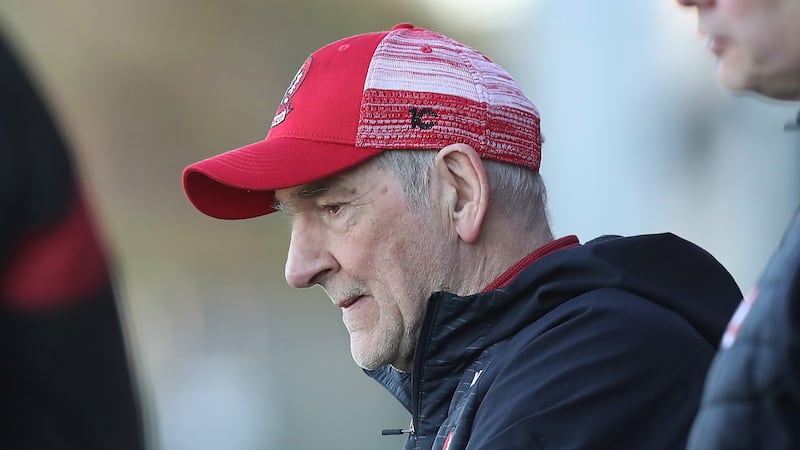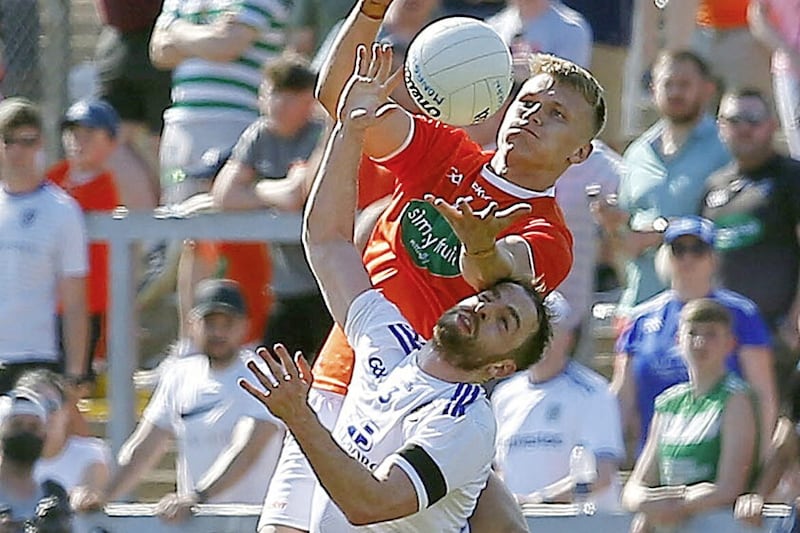AS we build up to GAA Congress at the end of February, we’ll read information from administrators regarding their highs and lows of the past season, on and off the field.
All motions to be tabled will be publicly debated to death. The healthy state of the GAA’s finances will no doubt be highlighted and talk of the possibility of our games one day going professional is never too far away.
It might seem rich me saying it now that I am no longer a county footballer, but I wouldn’t like to see our games going professional in the future. I also wouldn’t have wanted it to be professional while I was playing either. My reasons for this are simple – in a country the size of ours I don’t believe it is financially sustainable.
We have 68 inter-county teams between football and hurling competing for All Irelands each year, and with the possible exception of Galway, each county will have a poor relation in one of the two codes. Having listened to and read a wide variety of opinions relating to the potential professionalism of our games, none have convinced me that it is a viable long-term option.
I am aware the facts show the annual revenue generated by professional rugby in Ireland is similar to that of the GAA. The big difference, however, is that the IRFU only have to cater for four professional squads. Even then, they are fighting a constant battle to hold onto their best talent. Do we want to amalgamate counties in order to cut down on playing numbers to make the professional game possible?
As an association, we are 132 years in the making. The notion that the current model is broken has been gaining momentum over the past few years. But rather than chasing the dream of pay-for-play, I feel we’d be better served enhancing the appeal of our games by restructuring our club and county fixture lists into one calendar year and developing a funding package for each county to allow the footballers of Leitrim the same opportunity for elite preparation as Dublin.
For the top counties in Ireland, the game is already professional in everything bar name. The Mayo, Donegal, Kerry and Dublin footballers have excelled over the past number of years, the likes of Tyrone, Monaghan and Cork are hanging onto their coattails but the others are struggling to catch up.
The vast majority of GAA players have the same attitude. They play the game for something beyond money, but with increased demands they don’t want to feel exploited because of their attachment to the jersey. All they want is an equal opportunity to prepare.
There are so many perks to being a professional sportsman – playing the sport you love everyday, the wages, the profile and commercial endorsements. However, it does have its downsides when there’s money involved. Money demands results and the failure to deliver can cost you your livelihood.
Financially, you can end up doing very well for yourself, you could earn more in a short career than most will earn in a lifetime. However, as most players earn this money in there 20s, they don’t have the life experience to know what to do with it. Sport is full of adrenalin, so many players look for experiences off the field to create a similar response to excite them.
With all the business advice in the world available to them, so many sports stars still manage to blow vast amounts of their earnings on poor investments decisions. I have been fortunate enough on a few occasions to spend time in the company of professional soccer players.
I couldn’t help but ask the obvious questions about their envious daily routines and lifestyles. The general theme of their replies surprised me though. They explained the lack of culture now present in their sport.
There is very little personal interaction among the players beyond training; it’s every man for himself. They come in, they work, and they go home. It made me appreciate the friendships I’ve gained from my time with Crossmaglen and Armagh.
As a professional sports person, you also place your trust in your management, medical and fitness staff. Sometimes this can go woefully wrong as the recent carnage in the Essendon doping scandal in the AFL proves.
In January this year, following a protracted review of the 2012 AFL season by the World Anti-Doping Agency, it was found that the entire Essendon playing group undertook a program of banned substances on the advice of their medical team without their knowledge.
The players were assured everything they were taking was legal. The lack of disclosure by players about the injections received and pills taken and their lack of curiosity over what they were administered proved fatal as all 34 players, along with the entire management team registered to the club in 2012, were suspended from all AFL activity for 12 months.
It left their playing and managerial careers in turmoil. The professional environment doesn’t suit everybody. For most GAA players, football is their release from work and when Championships reach the final stages and the on-field pressures mount, work becomes our release from football.
Just because we do not personally benefit financially from the game, it does not necessarily mean we are losing out. I’m certain at some stage, each one of the 2,500-odd registered GAA clubs throughout Ireland and abroad will benefit from Croke Park’s income to help support development projects in our clubs and schools.
The culture of amateurism is different, it is tribal and unique. Would the paying public have the same connection and affiliation to their county teams if our game turned professional? I have my doubts.








